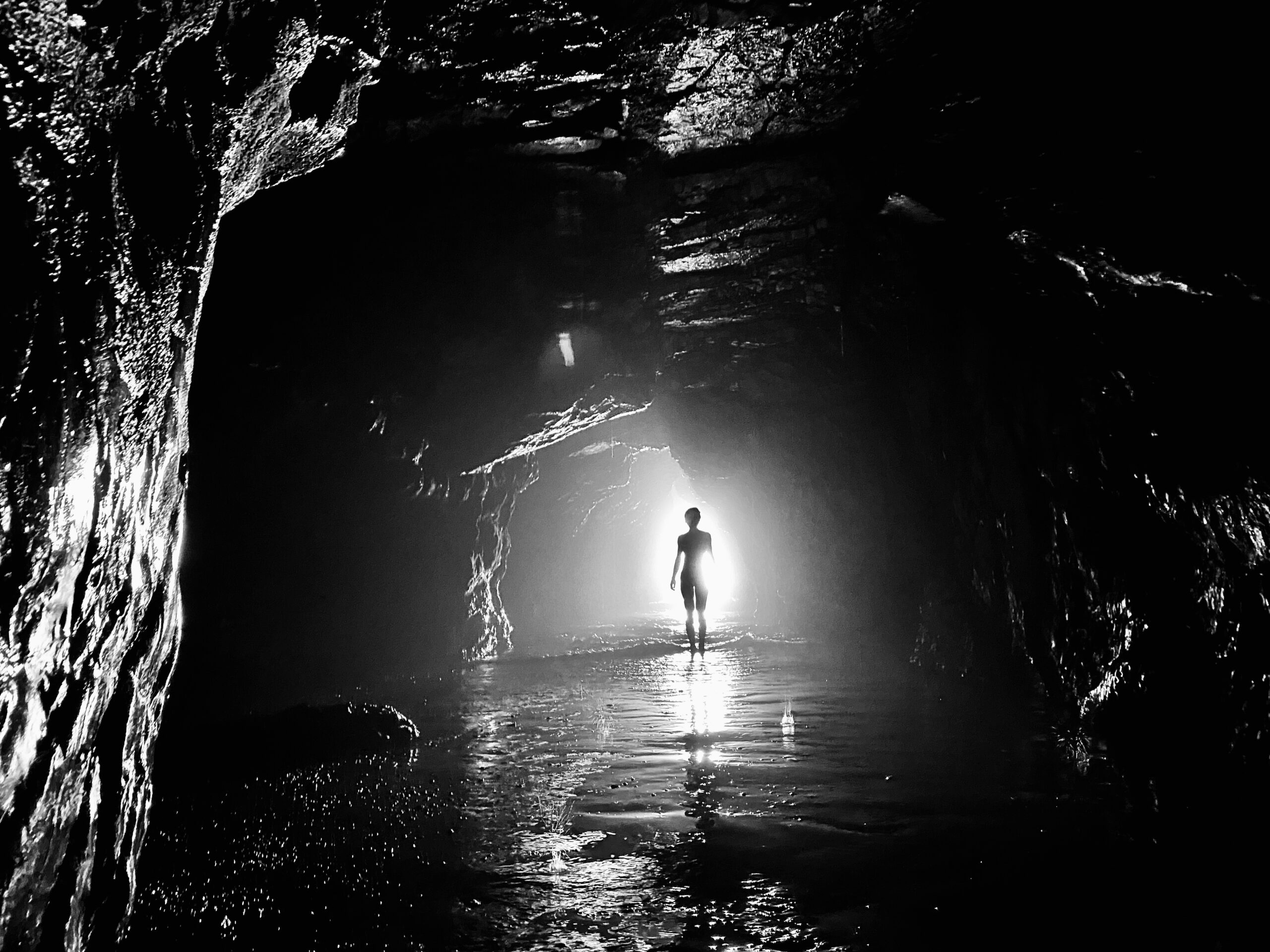In 2016, Jurgen and I visited Playa Ventanas for the first time, in Ojochal, in the Pacific Southwest of Costa Rica. It is very easy to get to: it is about 30 km south of Dominical, on the Costanera Sur. I remember it was a weekday and there was no one on the beach. There were no footprints. I fantasized about the idea that we would be the first to discover the place. At the ends of the beach, there were rocky rises with slightly sloping strata, in a direction opposite to the sea.
We had arrived at the best time: when the tide was at its lowest. We walked along the beach, on a smooth, clear, velvety sand. We moved towards the southern end of the beach while observing the caves that the sea had dug in the rock. How many treasures were hidden there? How could we discover them? Nature seemed to be an accomplice of the pirate in distress and offered him multiple options to hide his treasure.
A marine Costa Rica
Two windows cut through the rocky rise and let us see, in a tiny way, everything that was on the other side: the same light, the same sea, the same place, but there. We entered, fascinated with the possibility of touching that mirror in which we saw ourselves reflected. We decided to go for the widest window. Its entrance was triangular and followed the fractures in the rock. The sea, with the force of its waves, had taken advantage of the most fragile areas to sculpt, little by little, these windows.
Drops and sometimes jets of water fell through the rock of the ceiling. The acoustics and light changed. The sound was amplified, the light was extinguished and the reflections in the water were accentuated, which accumulated at our feet and entered like waves, from one side of the window and the other. Our legs detected the rise in the water level, no matter how small. We knew that it should not go beyond the base of the calves. That was our only connection to reality.
In that space where two waters, two reflections and two soul mates converged, a fantastic world was generated, for a few minutes. Time seemed to stand still under the hypnotic blanket of light, the ripples on the water, and the sound of droplets.
At that threshold, our vulnerability mattered very little. I thought of the weight of the rock on us and of all those sediments deposited about sixty million years ago in a deep ocean that today, thanks to erosion, we could visit through a crack turned into a window. What a privilege to arrive in the heart of the ocean of a marine Costa Rica, very ancient, made up of a few volcanoes!
We approached the rocks and, very easily, climbed. The strata formed almost perfect steps, and we could see subtle lines and slight variations in the coloration of the sediments. At that moment, a local appeared and told us: “Have you been to the caverns yet, on the other side of the beach? You have to go now, because the tide is low.” He was referring to, of course, the windows of Ventanas beach.
A hidden treasure
We took a lot of photos. Well, Jurgen took them. I was engrossed in my thoughts about the geological past written on those rocks. The past of a seabed that existed many years ago and that received the skeletons of marine organisms and volcanic sediments. These skeletons accumulated and, over time, generated thick deposits, which compacted and solidified to form the rocks that surrounded us at that time.
I was thinking about the tectonic stresses that were necessary to move those rocks from the ocean floor to where they are today, like those that caused the Limon earthquake, when the crust rose more than a meter. Thanks to these efforts, fractures were formed, which were then eroded by the sea to form caves and show us a geological past, a fantastic world and the other side of the mirror.
Today, almost ten years later, I look at a photograph of that trip and my skin crawls. I discover that the pirate’s hidden treasure was there, under all those rocks, between two waters. Of course it is not about me, but about my smallness, my vulnerability, my body that represents an instant in geological time.
I think about how naïve we are to arrive at a beach and pretend that we were the first in that place. We are just an ephemeral footprint on that beach that is moulded and opens windows. It will continue to do so, for millions of years to come, when we are no longer here.

